The future of wild camping in England and Wales hangs in the balance at the Supreme Court as decision looms
Dartmoor is the last place in England and Wales where people can sleep under the stars without seeking permission or paying for the privilege – campaigners face their final battle today
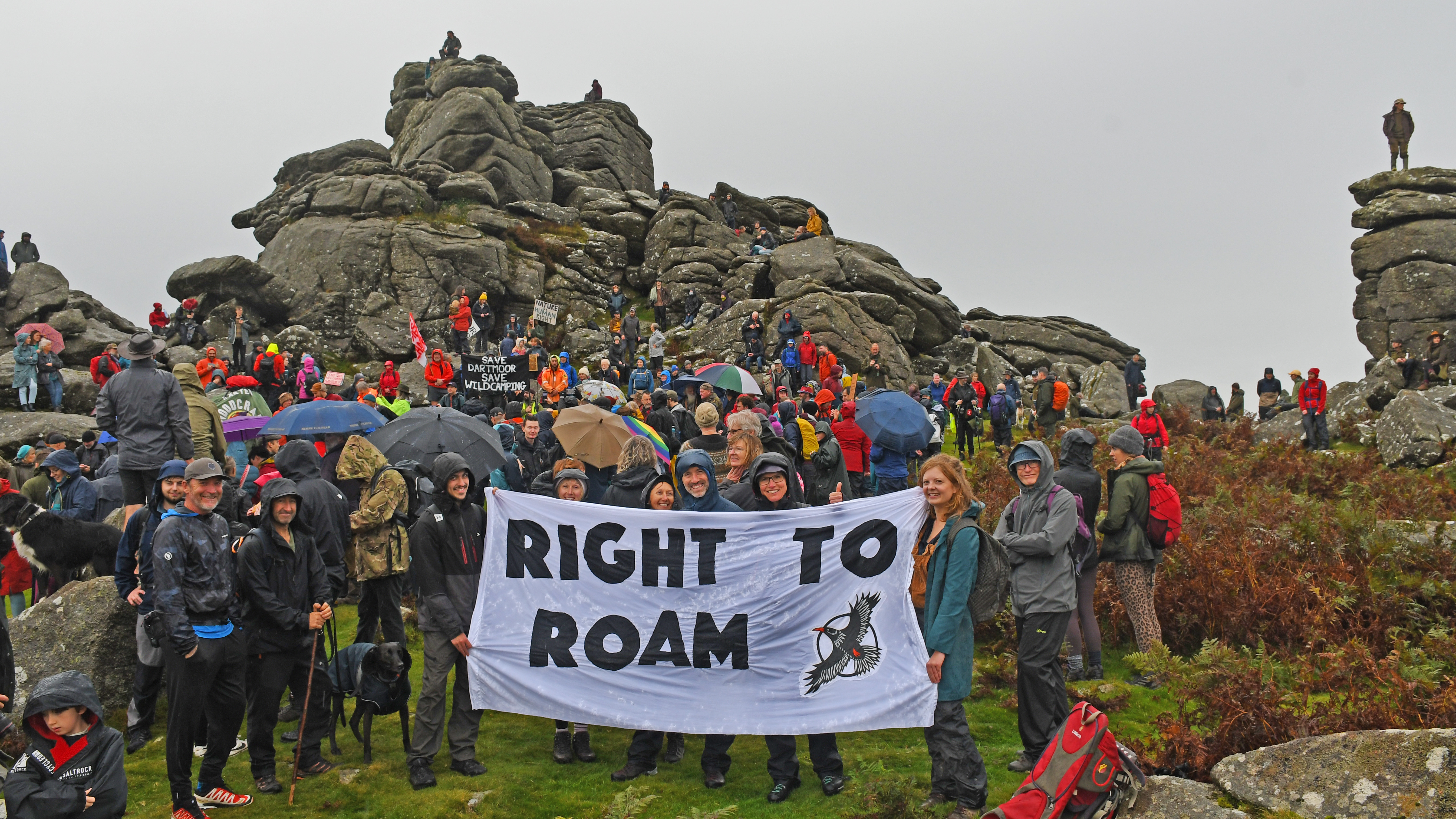
Hundreds of people gathered at Hound Tor on Dartmoor on Sunday, despite very heavy rain, to walk together across the commons, gather together and show support as the battle to protect the historic right to wild camp on the moor enters its next, crucially important stage. Thousands more are expected to rally on the streets of London today (Tuesday October 8), while the case being heard by the Supreme Court.
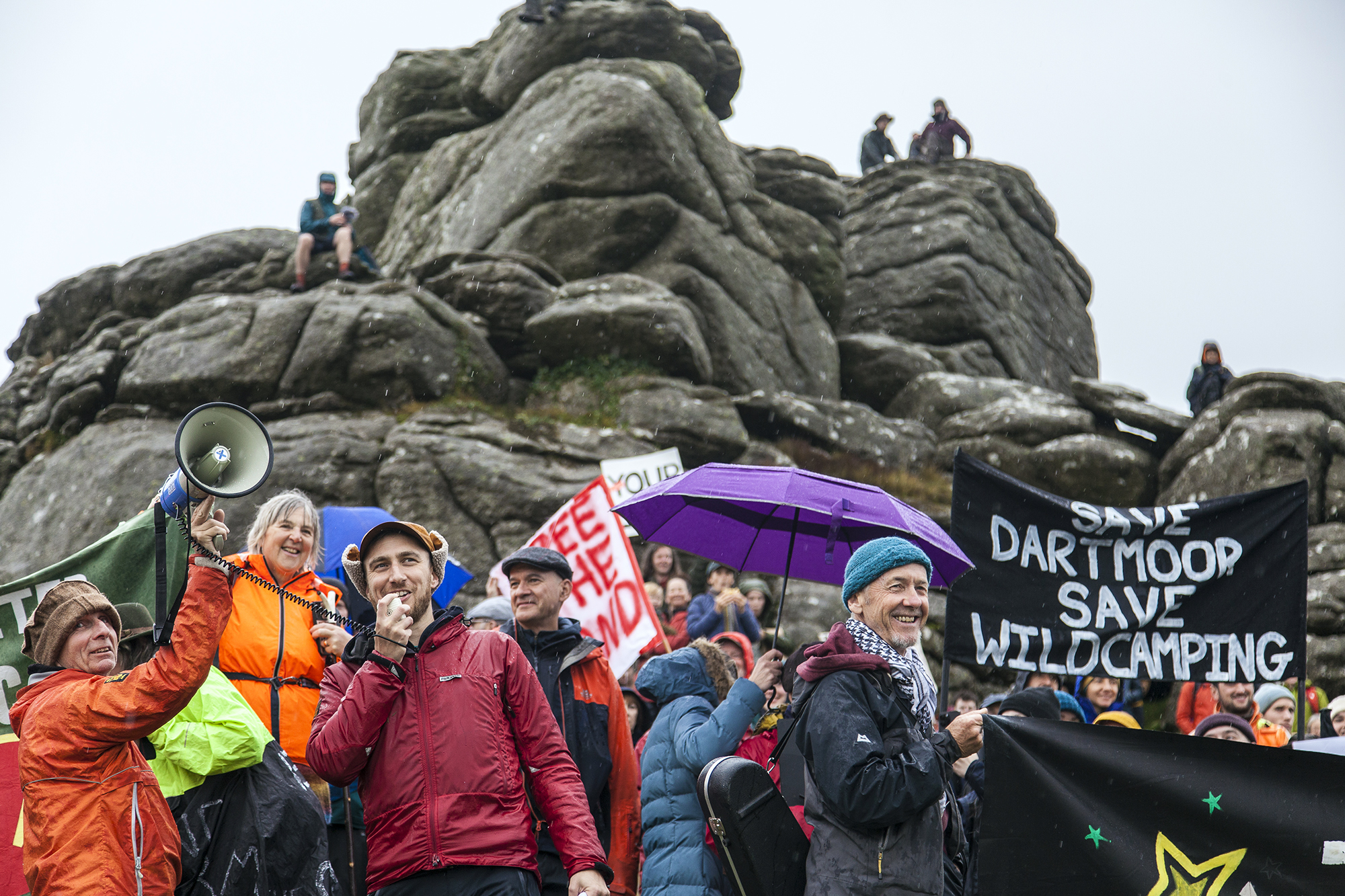
Dartmoor is the last place in all of England and Wales where people have the right to hike in, pitch a small backpacking tent, put up a tarp or simply lay down a camping mat and unfurl a sleeping bag and spend a night out under the stars without seeking permission or paying for the privilege. This right – enjoyed for decades by solo adventurers, friends, families, youth groups and community events such as the Ten Tors – is under threat because of legal action taken to revoke it by one wealthy landowner, hedgefund manager Alexander Darwall, who purchased the enormous 4,000-acre Blachford Estate on Dartmoor in 2011 and uses the land for holiday rentals, deer stalking and pheasant shooting.
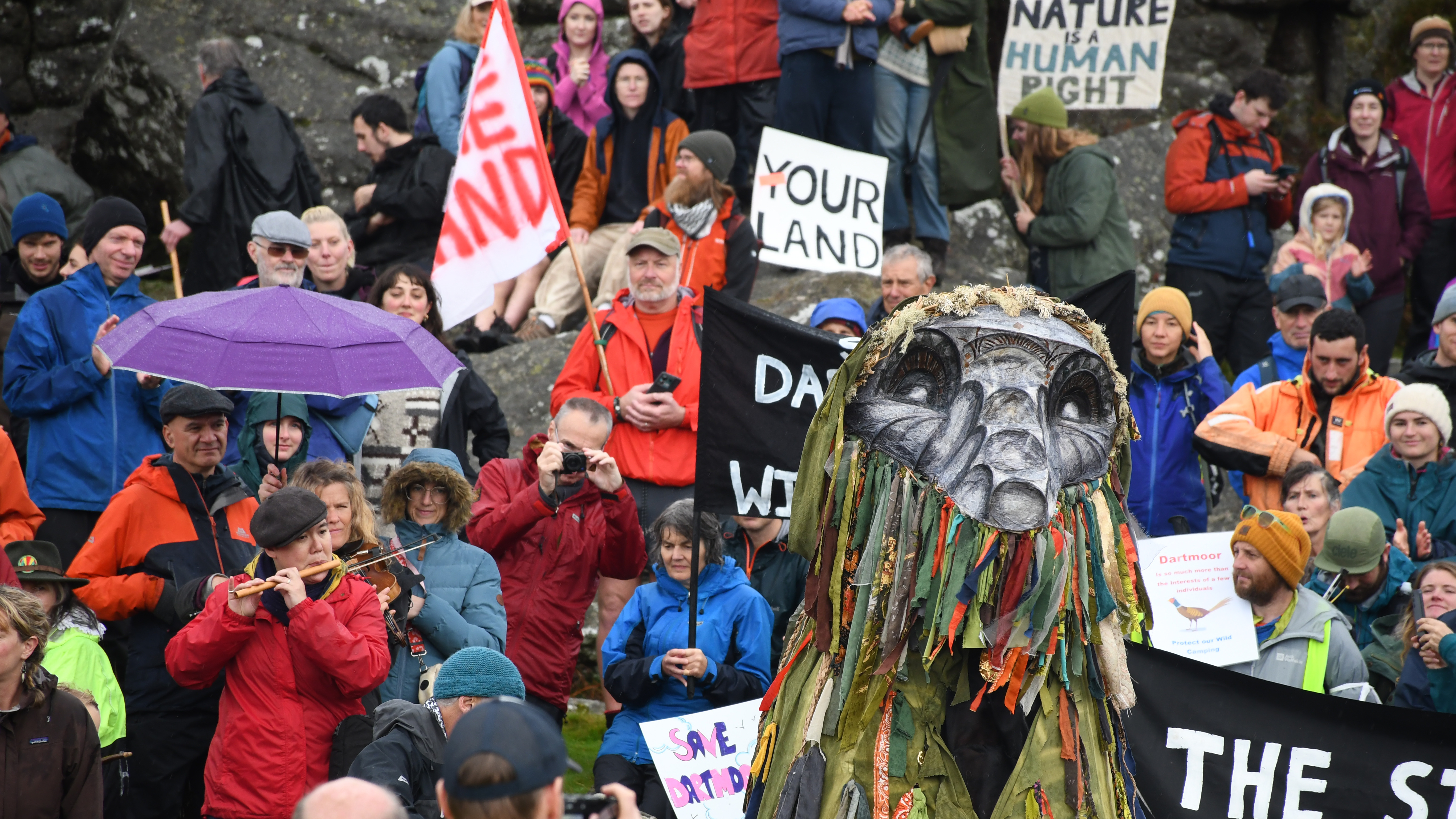
The High Court ruled in favour of Darwall in January 2023, provoking an enormous response from the outdoor groups and the general public across the UK. With support soaring for more and improved access to wild areas across England and Wales, in line with the far more generous Outdoor Code in Scotland, the case became a rallying call for ramblers, amblers, bird watchers, stargazers and everyone with an interest in the outdoors. Community groups and organisations including the British Mountaineering Council (BMC) pooled resources and the fight back began, spearheaded by the Dartmoor National Park Authority, custodians of the land, who fully support the right to wild camp. In July this year, the Court of Appeal reinstated the right to wild camp on the Dartmoor commons, but Darwall decided to escalate the case to the Supreme Court – Britain’s highest judicial authority.
Gallery from the Hound Tor protest
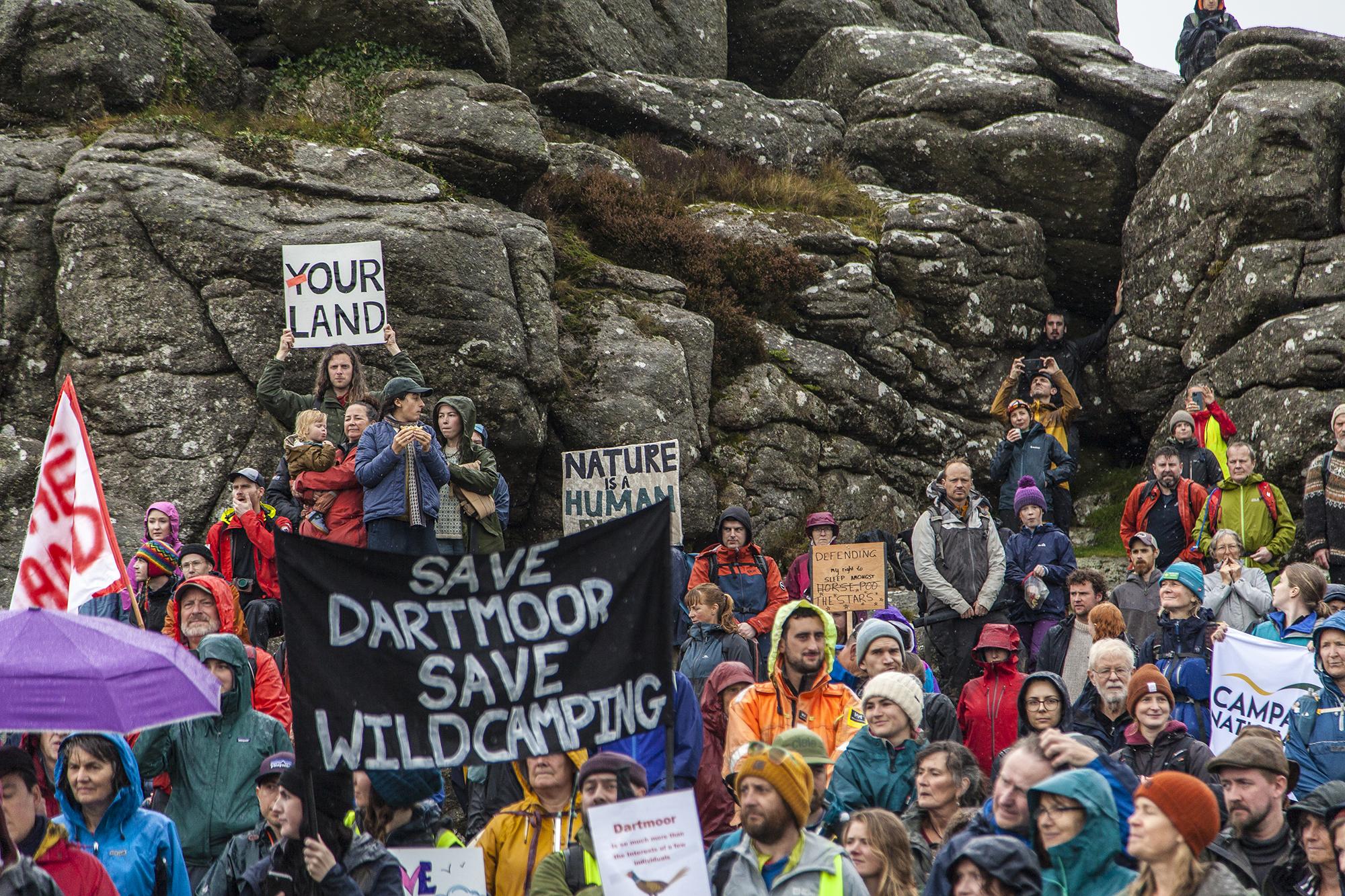
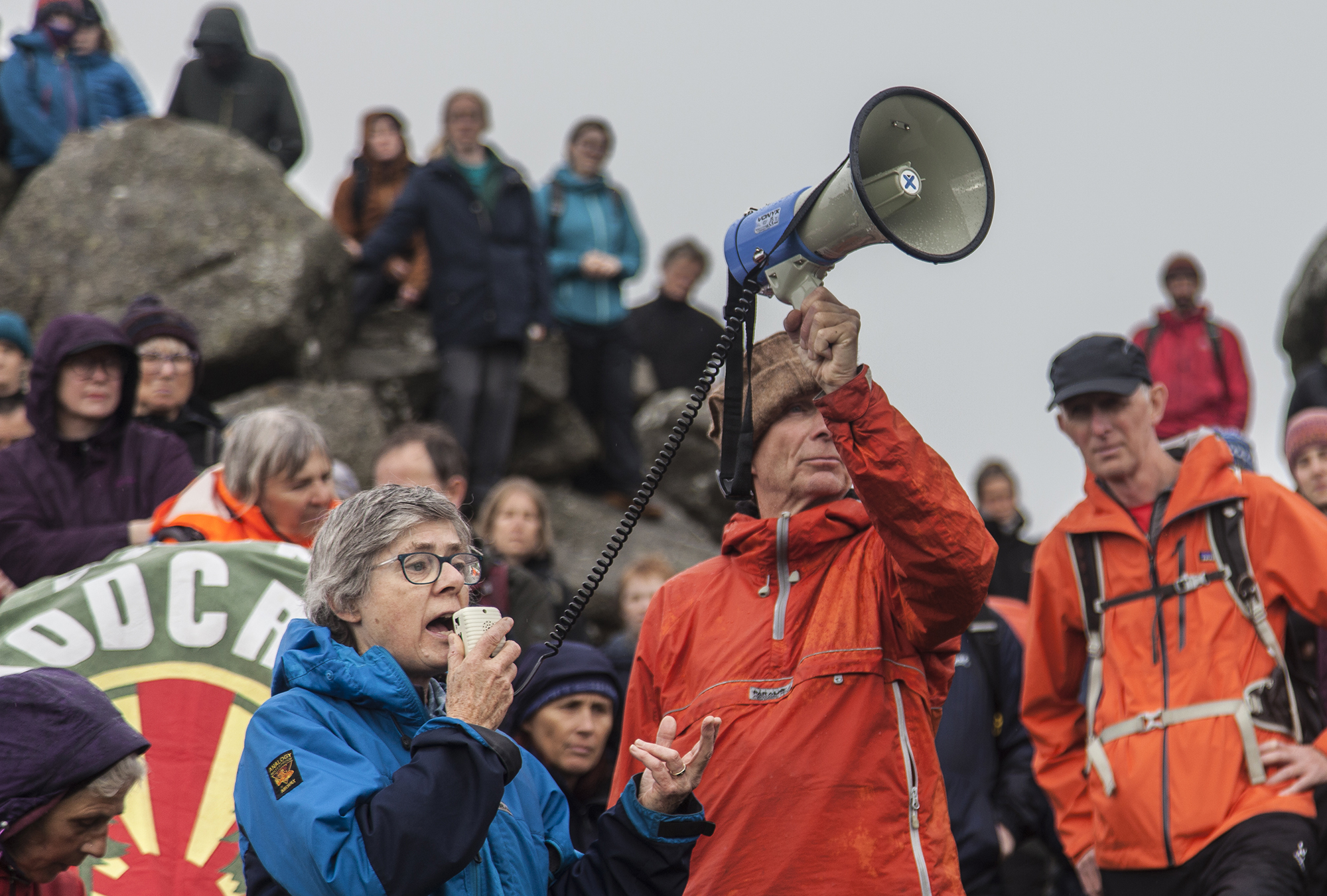
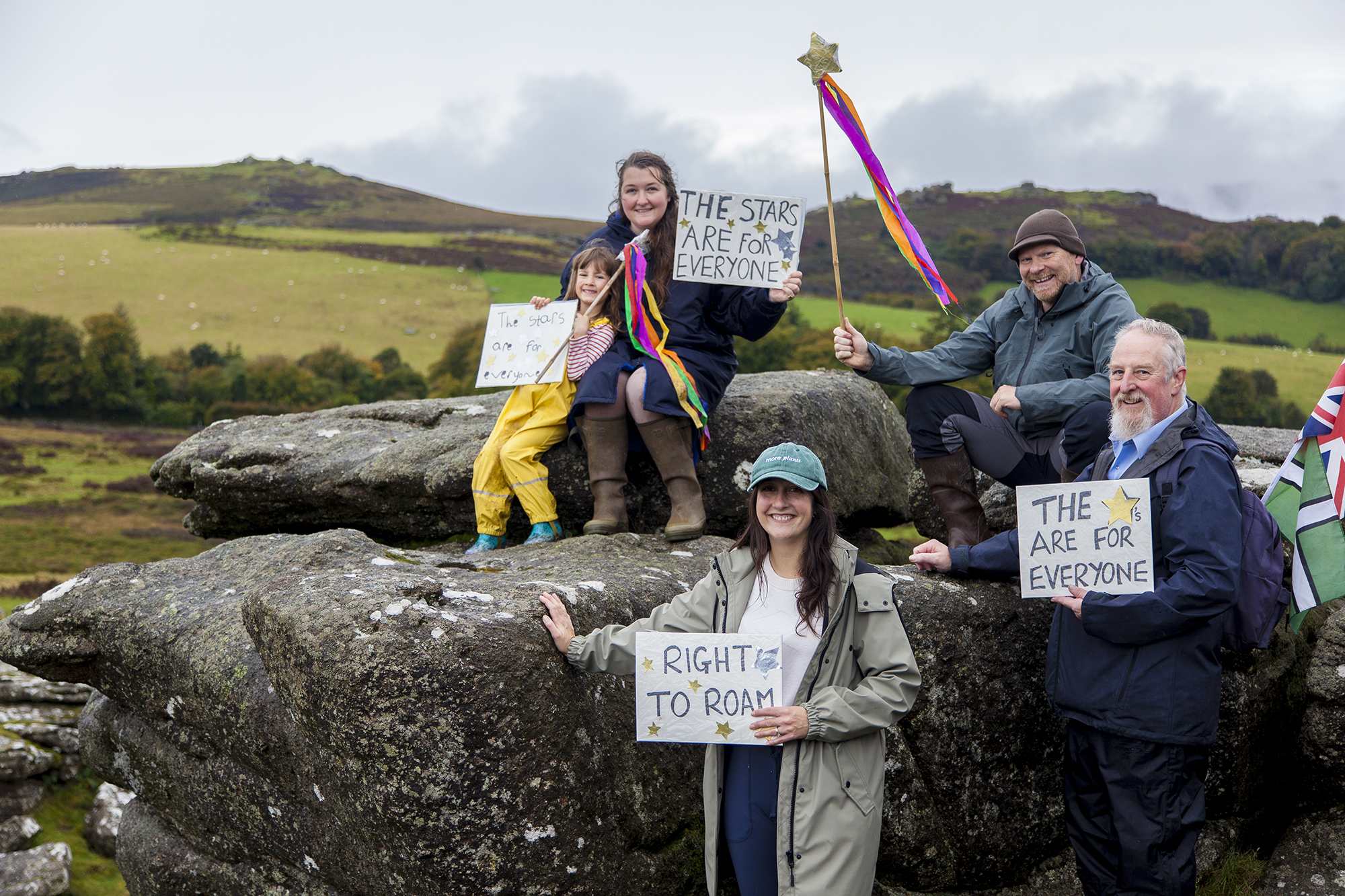
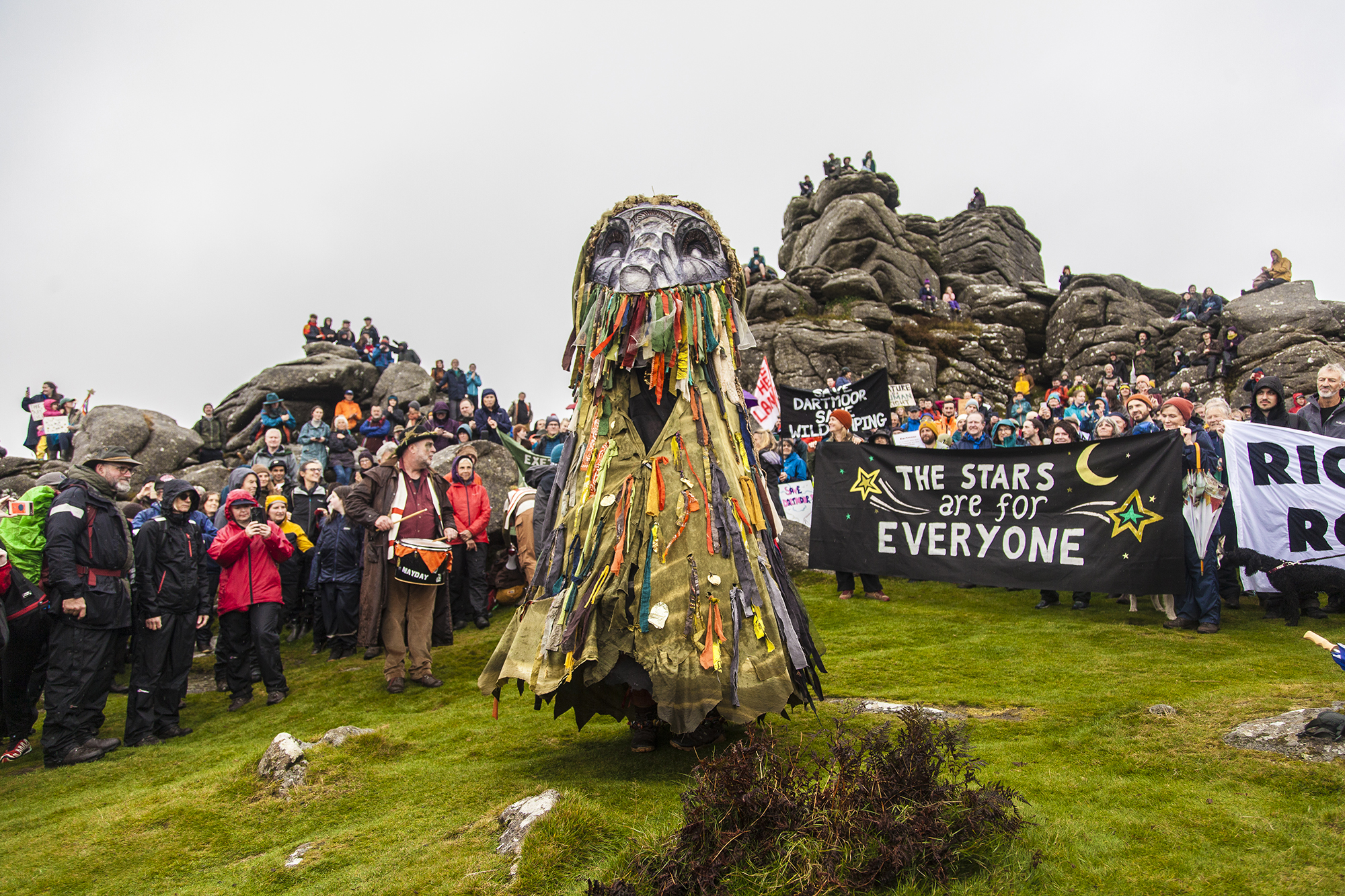
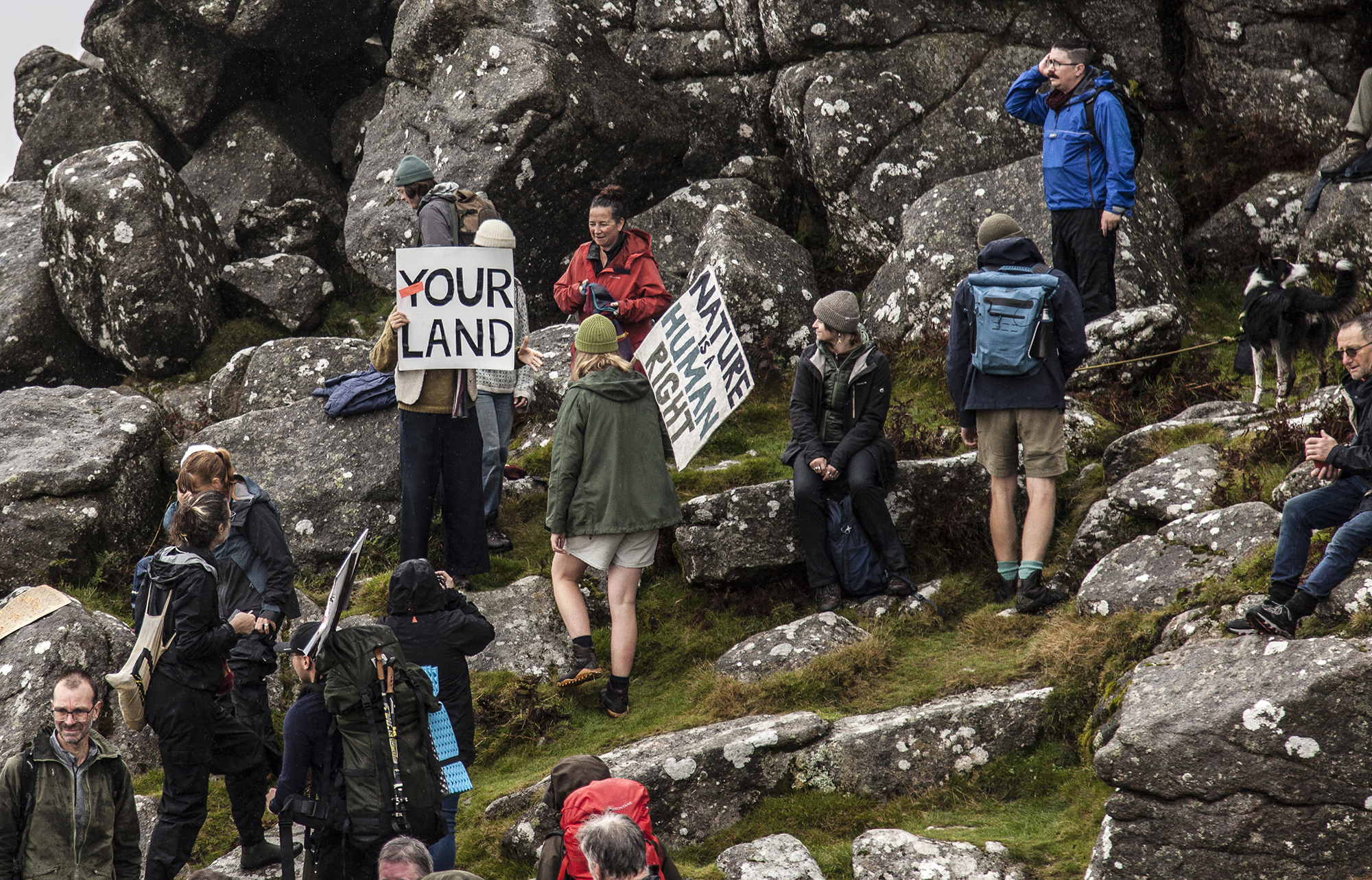
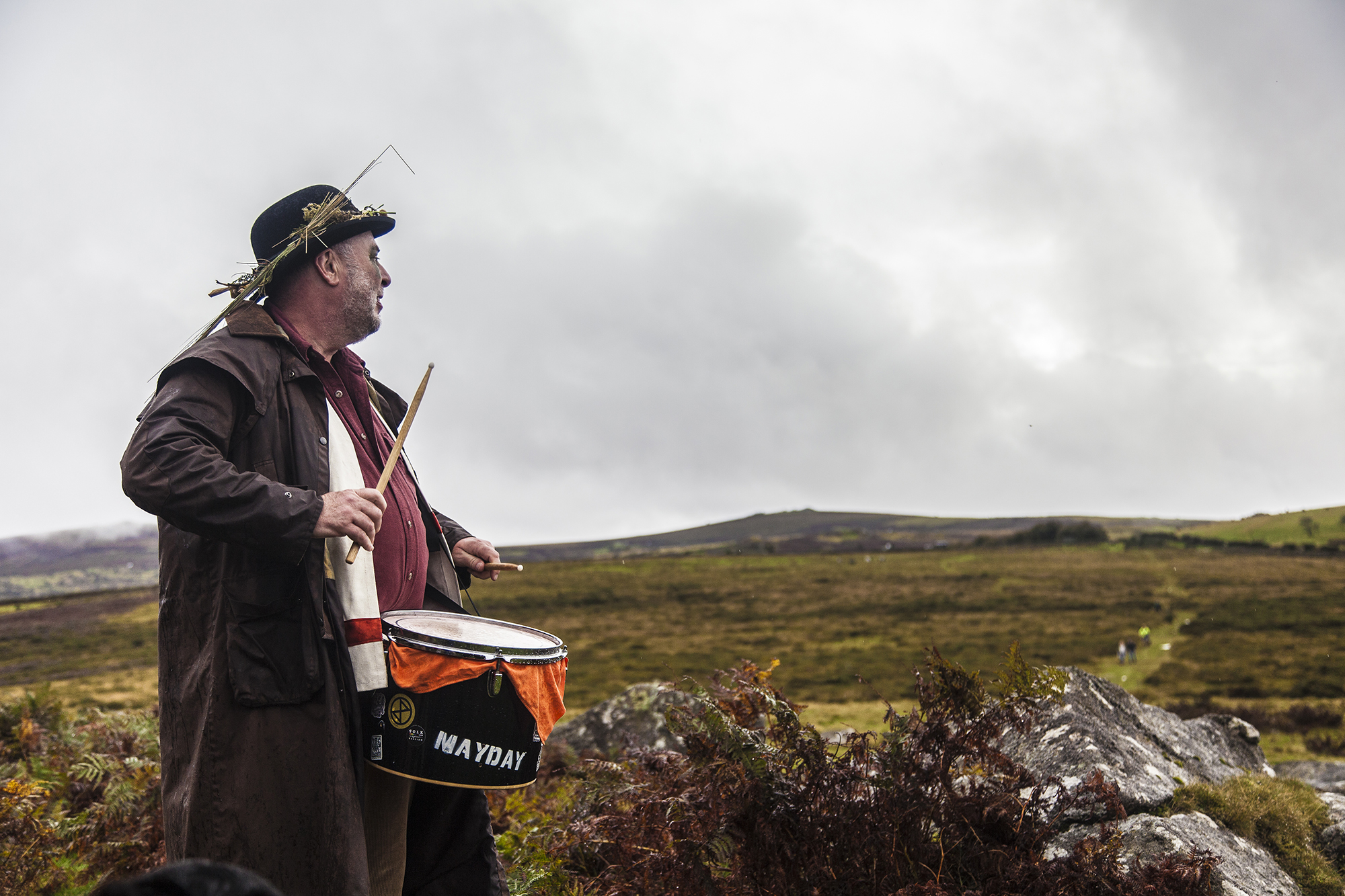
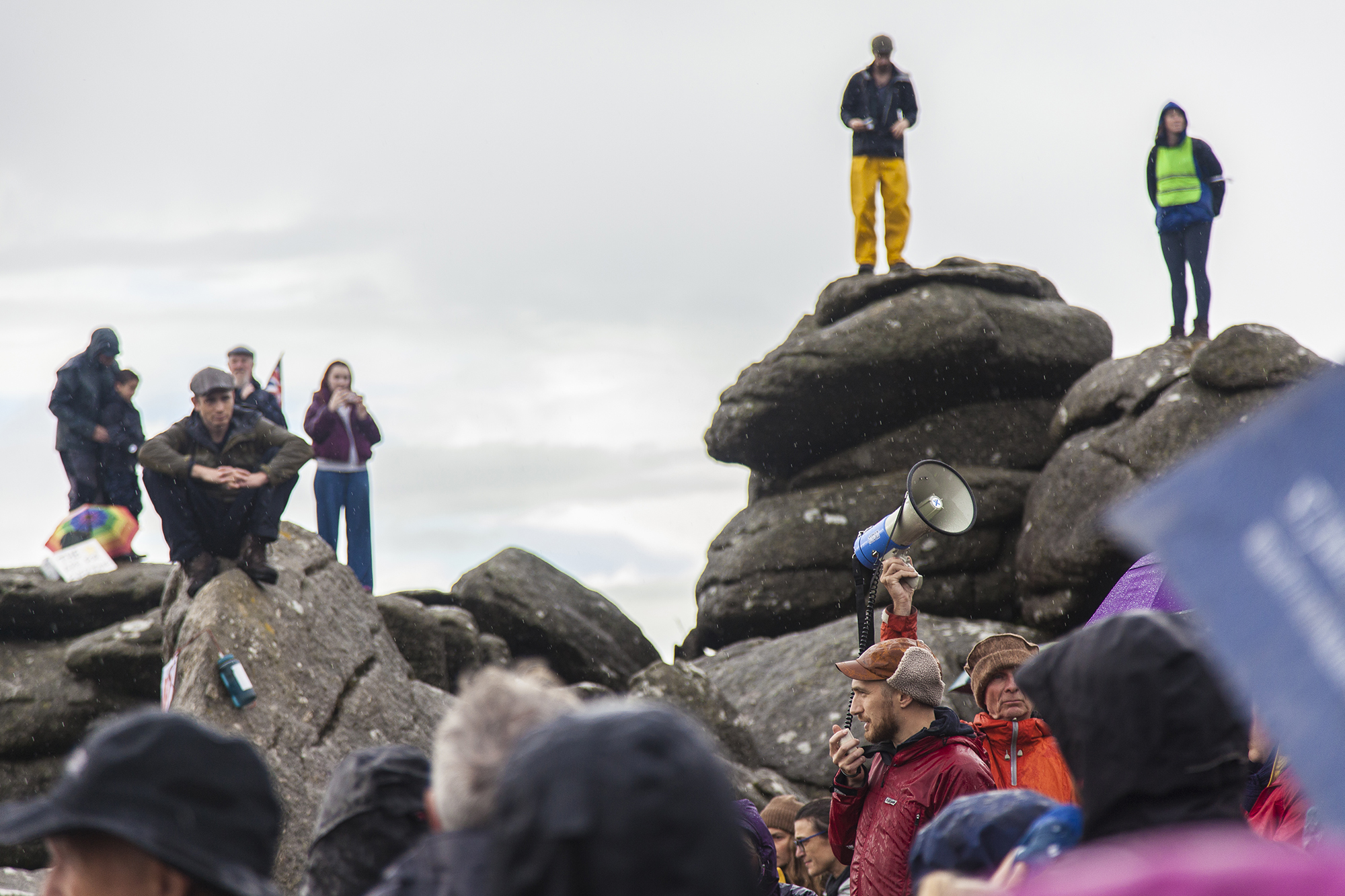
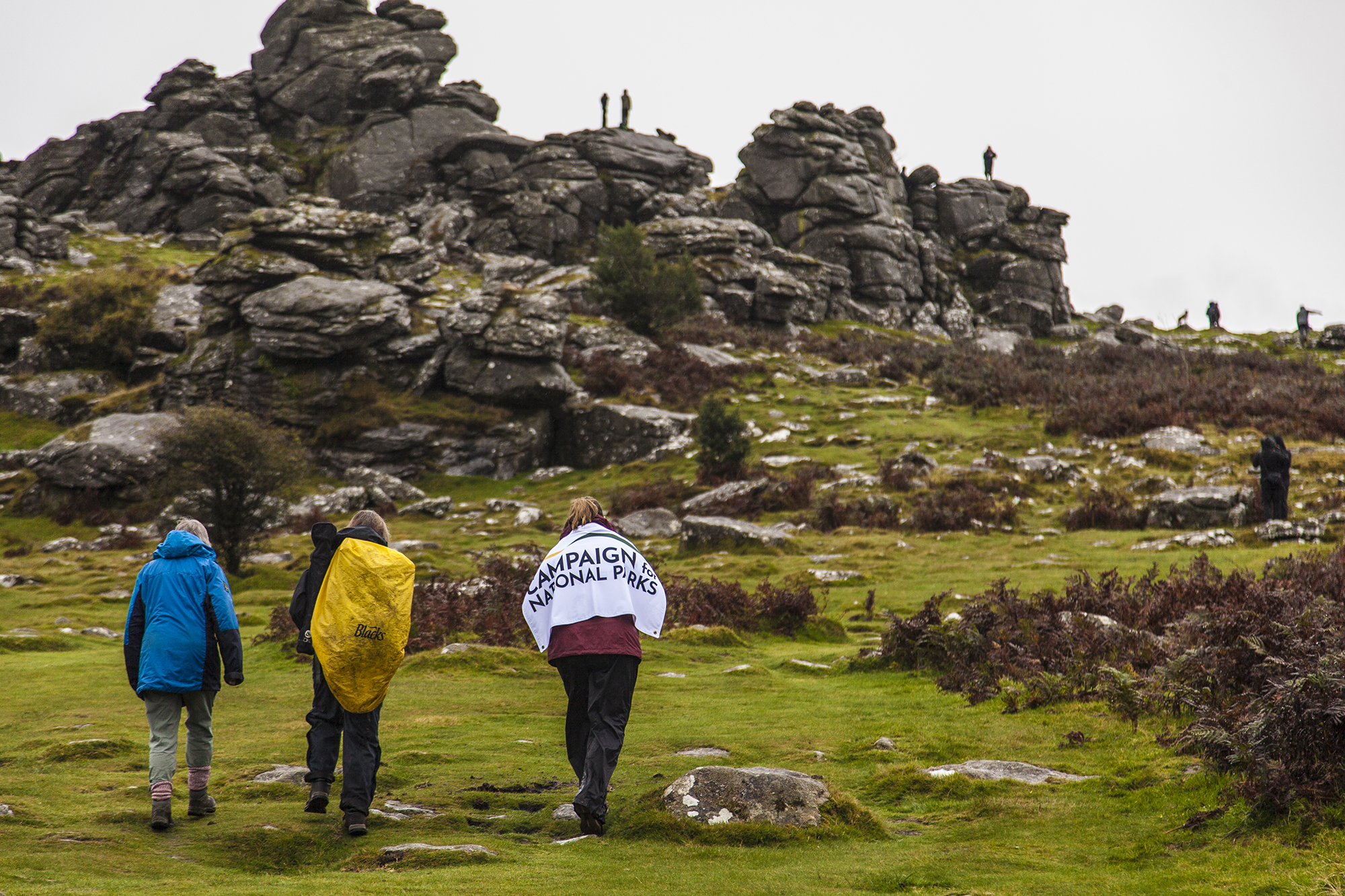
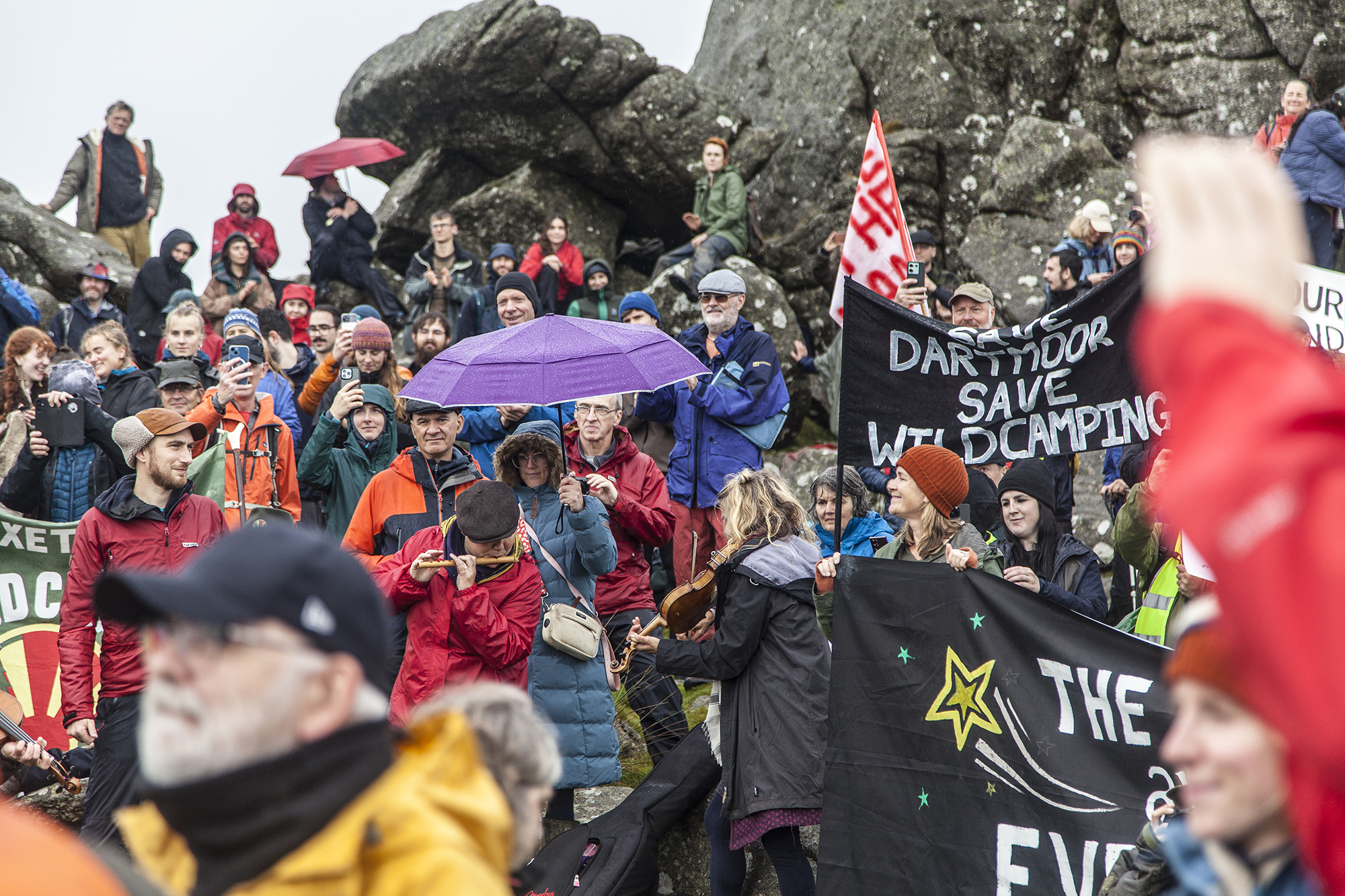
The rally on Dartmoor was addressed by Right to Roam campaigner and environmental social scientist Lewis Winks, who spoke about the transformative effect spending time outdoors on Dartmoor can and does have for many people who don’t have access to other wild areas. He referenced the many not-for-profit and charity groups, including the Dartmoor Preservation Association, who raise funds to support Dartmoor Youth Rangers and enable initiatives like Girls Do Dartmoor and Nights Under The Stars, that enable young people from all backgrounds to experience the outdoors through overnight access to the moor – projects that would be dealt a death blow if the right to wild camp was removed.
The imposition of a permit system, where you have to book and pay to camp in prescribed areas of the moor in advance, wouldn’t just put another barrier on people getting outdoors, he explained, it would also mean "the removal of a long-standing right held by everyone, and place the power of deciding access permissions in the hands of individuals who could choose to remove them at any point".
In opposition, the Labour Party (and the Liberal Democrats and the Greens) pledged to improve outdoor access across the country, but they have been silent on the issue since the election.
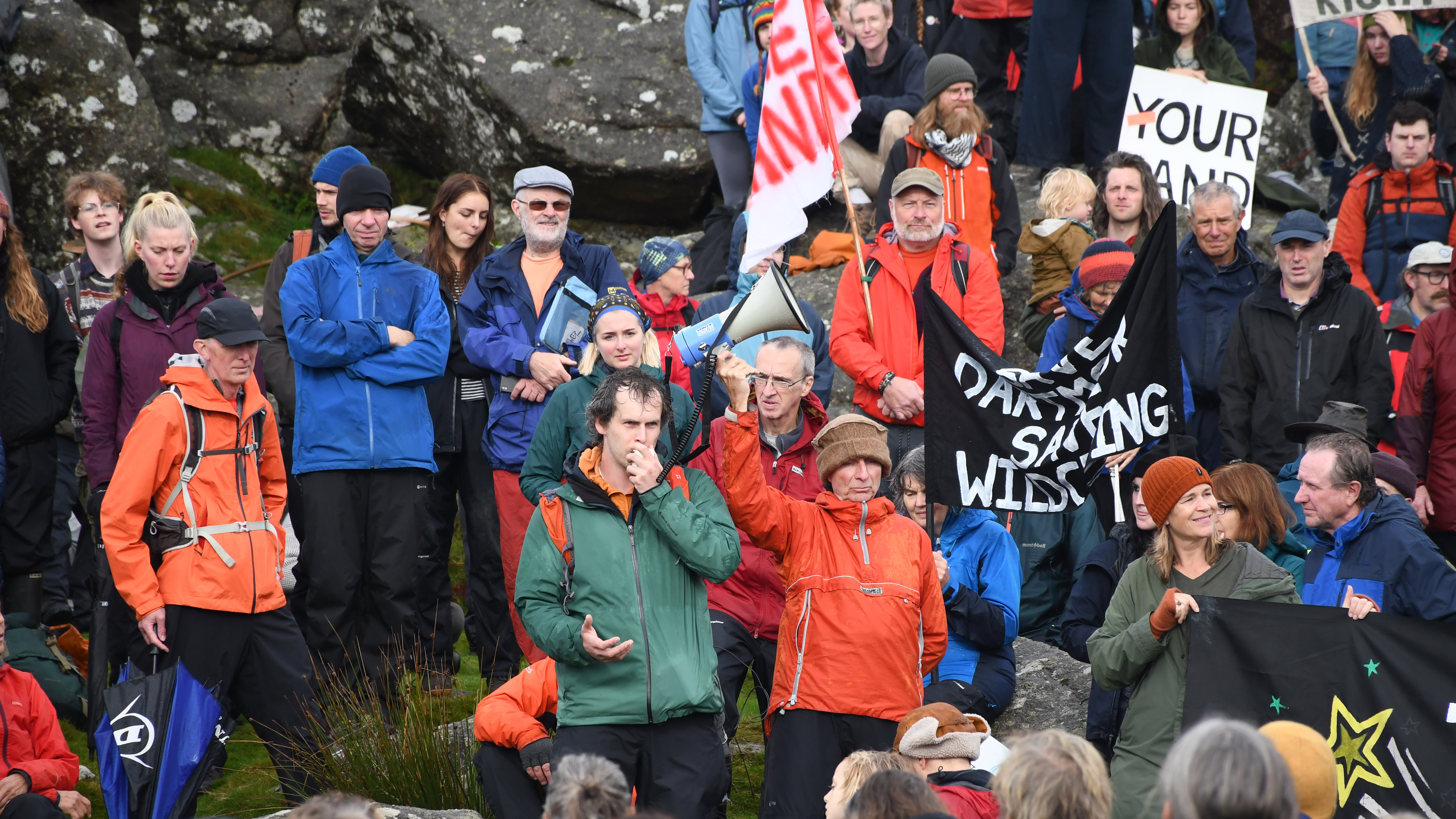
The crowd also heard from Eben Myrddin Muse, campaigns officer for the British Mountaineering Council, who explained that his organisation had joined the campaign to fight for the right to wild camp on Dartmoor after polling their 85,000-plus members and receiving feedback that the issue was something 95% of them felt very passionate about.
Advnture Newsletter
All the latest inspiration, tips and guides to help you plan your next Advnture!
The crux of the legal case is whether sleeping outdoors constitutes a ‘recreational activity’. The Dartmoor Commons Act 1985 grants the public ‘right of access to the commons on foot and on horseback for the purpose of open-air recreation’, and Darwall argues that this does not include wild camping, because it’s not specifically mentioned. However, as Kate Ashbrook, general secretary of the Open Spaces Society, who was involved in the wording of the original act, explained to the gathering on Dartmoor: “The legislation didn’t ignore wild camping – it was considered part and parcel of outdoor recreation” - a point the campaign’s lawyers will be making to the five judges in the Supreme Court.
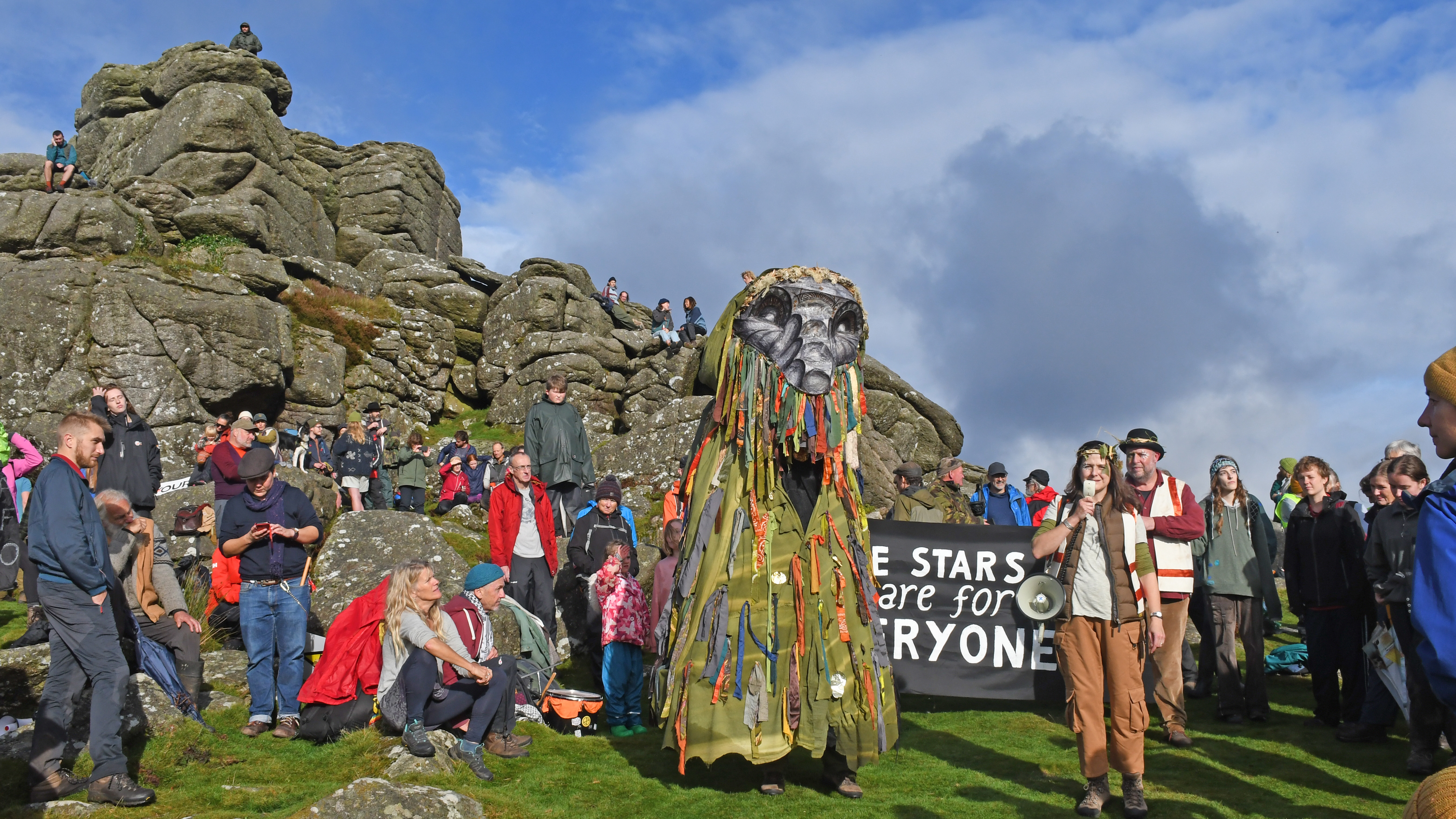
Darwall’s lawyers are expected to argue that wild camping leads to rubbish being left on the moor, and the behaviour of wild campers can create fire hazards. This is roundly rejected by outdoor groups, who say that the culture of hike-in wild camping is rooted in a leave-no-trace ethos, where fires are never lit and everything taken in is packed back out. They say there has never been a recorded incident of wild camping causing a fire on Dartmoor, and plenty of evidence that the problems such as litter and antisocial behaviour on the moor is created by nuisance car camping / fly camping, which are both already prohibited. Indeed, they say the presence of outdoor enthusiasts on Dartmoor at all hours actually discourages and helps police such destructive incidents.
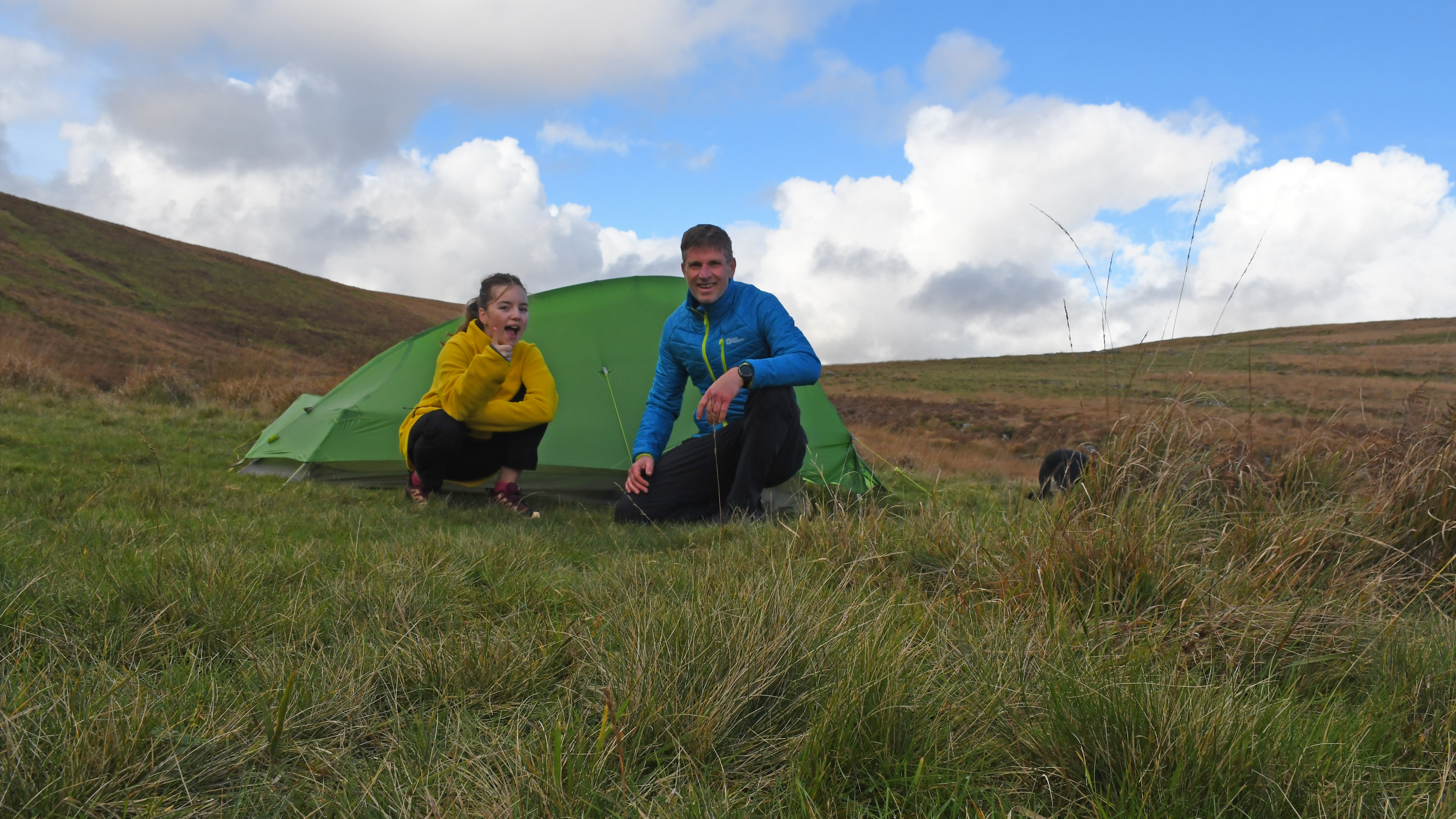
The rally finished with a positive but defiant message. "Whatever happens on Tuesday, win or lose, we will gather again on Dartmoor," pledged Lewis Winks. The campaign for the right to roam - and sleep out - across Britain continues.
The case goes to the Supreme Court today (Tuesday 8 October), with a decision expected imminently, and as we have previously reported the stakes are high. If Britain’s highest judicial authority decides in favour of Darwall, not only will current and future generations lose the right to wild camp entirely, but the Dartmoor National Park Authority will be facing a potential £400,000 bill in court costs. Watch this space for updates.
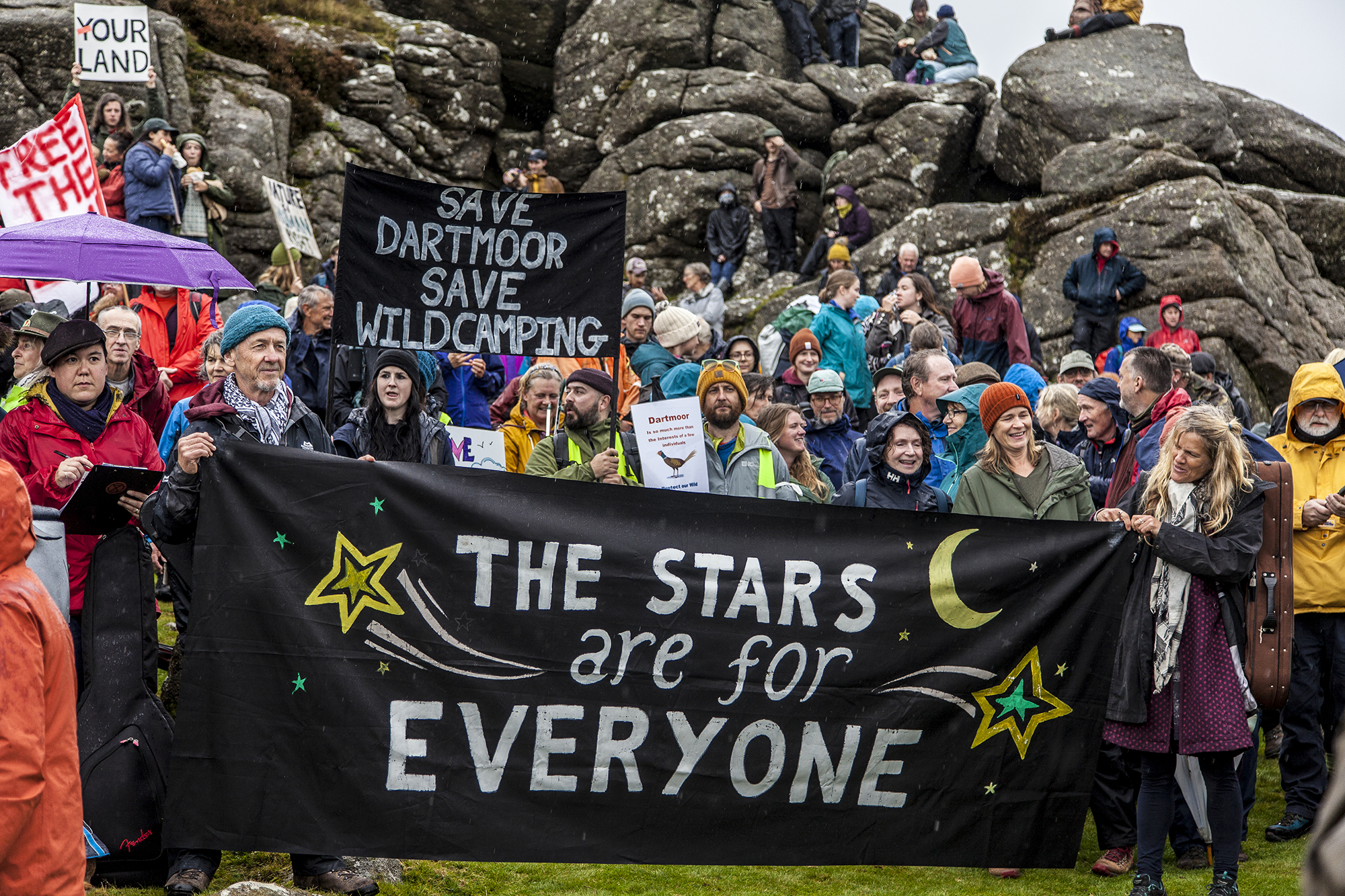
**Update**
No verdict been announced by the Supreme Court as yet (Thursday 17 October), but reports from inside the court have revealed that Darwall's lawyers have argued that even pausing for a picnic on Dartmoor is technically trespass, and that people are only permitted to walk and ride horses on the moor under the terms of the Dartmoor Commons Act 1985.
We will bring you news of this case as soon as as decision is announced.

Author of Caving, Canyoning, Coasteering…, a recently released book about all kinds of outdoor adventures around Britain, Pat has spent 20 years pursuing stories involving boots, bikes, boats, beers and bruises. En route he’s canoed Canada’s Yukon River, climbed Mont Blanc and Kilimanjaro, skied and mountain biked through the Norwegian Alps, run an ultra across the roof of Mauritius, and set short-lived records for trail-running Australia’s highest peaks and New Zealand’s Great Walks. He’s authored walking guides to Devon and Dorset, and once wrote a whole book about Toilets for Lonely Planet. Follow Pat’s escapades on Strava here and Instagram here.
- Gary MooreContributor
